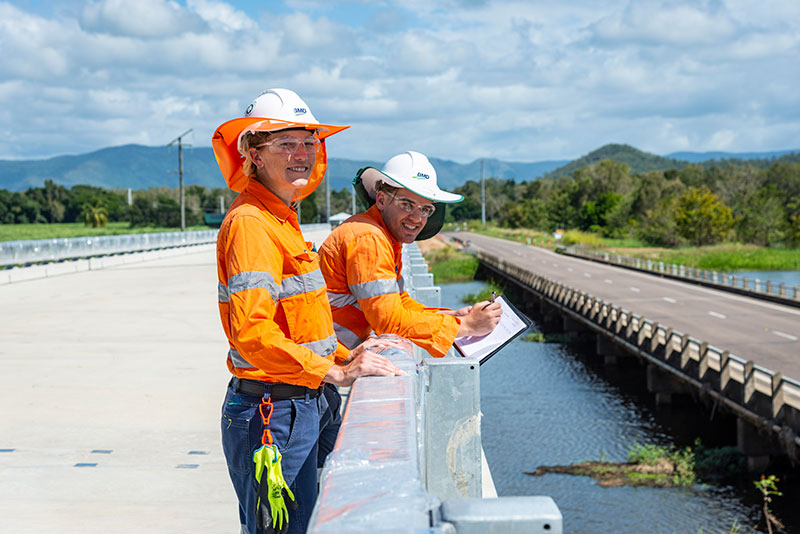National Water Week spotlight series: Paul Coysh
National Water Week is making a splash across Australia this week with this year’s theme, ‘United by Water’. Taking place from October 16-22, National Water Week encourages individuals, communities, schools and organisations to be inspired to promote the importance of water.
At BMD, we’re making major waves in the water and wastewater sector which is why we’re excited to shine a spotlight on our people working across our many water projects nationally.
We have a long history of delivering effective and resilient water and wastewater infrastructure projects and our specialist teams work with our clients to offer industry leading technologies and treatment processes.
Meet Paul Coysh, Senior Project Manager, and currently engaged as the Assistant Project Director – South East Water IPD Framework, (see more about the IPD here).
Q: It’s National Water Week and we are shining a spotlight on BMD’s growth in the water sector. What do you enjoy about working in the water sector and the role you have in being part of the solution?
A: Water is an essential resource for all life on our planet. It’s important to remember that it’s a finite and shared resource, and we all have a responsibility to manage our water use wisely. The water sector offers an incredibly diverse working environment. One day, you might be focused on a reservoir or dam, while the next could find you deep underground tunnelling for a new sewer. It’s a fantastic and ever-evolving challenge.
Q: What are some key water infrastructure projects you’ve been involved in, and how have they contributed to the bigger picture of water resource management?
A: I’ve had the privilege of working on various key water assets in Melbourne, spanning from headworks and significant dam embankment upgrades to all aspects of the water cycle and sewage treatment at Melbourne’s major wastewater treatment plants. If I had to highlight three projects I’m most proud of, they would be the Alphington Sewer Upgrade, where we pushed the boundaries of what a micro-tunnelling machine could achieve, the Upper Yarra Dam Safety Upgrade, which involved large-scale earthworks on a live reservoir embankment critical to Melbourne, and the diversion gate works at the Eastern Treatment Plant inlet, which was logistically challenging and my first project in Australia.
Q: How do you see your role in creating a positive impact in the water sector to ensure the infrastructure is resilient, fit for purpose, and considers challenges going forward?
A: As a Senior Project Manager at BMD, my role is to influence and empower our teams to pursue sustainable practices and challenge the status quo. I believe that leadership should wholeheartedly support critical thinking from the newer engineers in our industry. Progress comes from innovation and improvement, not from simply repeating established processes.
Q: Can you share any sustainable construction practices and technologies are being utilised to minimise the environmental impact of water infrastructure projects?
A: Sustainable construction practices have made significant progress in recent years. We now upcycle what was once considered waste into construction materials, a practice not limited to the water sector but industry wide. Recycled asphalt, “green” pipes made from recycled plastics, and crushed glass aggregates for pipe bedding are now commonplace. However, sustainability goes beyond using recycled products. We need to address concrete as a major contributor to our carbon footprint in the construction industry and seek out more durable, easily maintainable plant and equipment to reduce the overall life costs of assets.
Back to news


